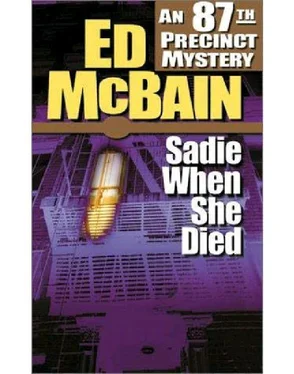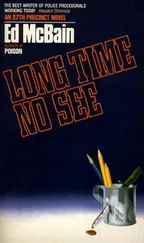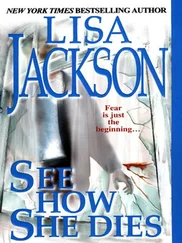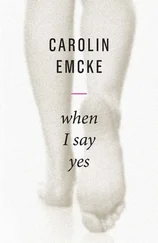Ed McBain - Sadie When She Died
Здесь есть возможность читать онлайн «Ed McBain - Sadie When She Died» весь текст электронной книги совершенно бесплатно (целиком полную версию без сокращений). В некоторых случаях можно слушать аудио, скачать через торрент в формате fb2 и присутствует краткое содержание. Жанр: Полицейский детектив, на английском языке. Описание произведения, (предисловие) а так же отзывы посетителей доступны на портале библиотеки ЛибКат.
- Название:Sadie When She Died
- Автор:
- Жанр:
- Год:неизвестен
- ISBN:нет данных
- Рейтинг книги:4 / 5. Голосов: 1
-
Избранное:Добавить в избранное
- Отзывы:
-
Ваша оценка:
- 80
- 1
- 2
- 3
- 4
- 5
Sadie When She Died: краткое содержание, описание и аннотация
Предлагаем к чтению аннотацию, описание, краткое содержание или предисловие (зависит от того, что написал сам автор книги «Sadie When She Died»). Если вы не нашли необходимую информацию о книге — напишите в комментариях, мы постараемся отыскать её.
Sadie When She Died — читать онлайн бесплатно полную книгу (весь текст) целиком
Ниже представлен текст книги, разбитый по страницам. Система сохранения места последней прочитанной страницы, позволяет с удобством читать онлайн бесплатно книгу «Sadie When She Died», без необходимости каждый раз заново искать на чём Вы остановились. Поставьте закладку, и сможете в любой момент перейти на страницу, на которой закончили чтение.
Интервал:
Закладка:
“That’s it,” Carella said.
The young man hesitated. Still poised on the ball of one foot, the other slightly back and cocked for release, he looked at Carella and said, “ What’s it?” He was smiling. He seemed to welcome the opportunity of taking on another victim. He turned fully toward Carella now, balancing his weight evenly on both feet, fists bunched. “Did you say something?” he asked, still smiling.
“Pack your bag, sonny,” Carella said, and bent down to help Fletcher to his feet. He was prepared for what happened next, and was not surprised by it. The only one surprised was the young man, who threw his right fist at the crouching Carella and suddenly found himself flying over Carella’s head to land flat on his back in the sawdust. He did next what he had done instinctively since the time he was twelve years old. He reached for a knife in the side pocket of his trousers. Carella did not wait for the knife to clear his pocket. Carella kicked him cleanly and swiftly in the balls. Then he turned to the bar, where another young man seemed ready to spring into action, and very quietly said, “I’m a police officer. Let’s cool it, huh?”
The second young man cooled it very quickly. The place was very silent now. With his back to the bar, and hoping the bartender would not hit him on the head with a sap or a bottle or both, Carella reached under Fletcher’s arms and helped him up.
“You okay?” he said.
“Yes, fine,” Fletcher said.
“Come on.”
He walked Fletcher to the door, moving as swiftly as possible. He fully recognized that his shield afforded little enough protection in a place like this, and all he wanted to do was get the hell out fast. On the street, as they stumbled toward the automobile, he prayed only that they would not be cold-cocked before they got to it.
A half-dozen men came out of the bar just as they climbed into the automobile. “Lock that door!” Carella snapped, and then turned the ignition key, and stepped on the gas, and the car lurched away from the curb in a squeal of burning rubber. He did not ease up on the accelerator until they were a mile from Quigley’s, by which time he was certain they were not being followed.
“That was very nice,” Fletcher said.
“Yes, very nice indeed,” Carella said.
“I admire that. I admire a man who can do that,” Fletcher said.
“Why in hell did you pick that sweet dive?” Carella asked.
“I wanted you to see them all,” Fletcher said, and then eased his head back against the seat cushion, and fell promptly asleep.
11
E arly Monday morning, on Kling’s day off, he called Cindy Forrest. It was only seven-thirty, but he knew her sleeping and waking habits as well as he knew his own, and since the phone was on the kitchen wall near the refrigerator, and since she would at that moment be preparing breakfast, he was not surprised when she answered it on the second ring.
“Hello?” she said. She sounded rushed, a trifle breathless. She always allowed herself a scant half hour to get out of the apartment each morning, rushing from bedroom to kitchen to bathroom to bedroom again, finally running for the elevator, looking miraculously well-groomed and sleek and rested and ready to do battle with the world. He visualized her standing now at the kitchen phone, only partially clothed, and felt a faint stirring of desire.
“Hi. Cindy,” he said, “it’s me.”
“Oh, hello, Bert,” she said. “Can you hold just a second? The coffee’s about to boil over.” He waited. In the promised second, she was back on the line. “Okay,” she said. “I tried to reach you the other night.”
“Yes, I know. I’m returning your call.”
“Right, right,” she said. There was a long silence. “I’m trying to remember why I called you. Oh, yes. I found a shirt of yours in the dresser, and I wanted to know what I should do with it. So I called you at home, and there was no answer, and then I figured you probably had night duty, and I tried the squadroom, but Steve said you weren’t on. So I decided to wrap it up and mail it. I’ve already got it all addressed and everything.”
There was another silence.
“So I guess I’ll drop it off at the post office on my way to work this morning,” Cindy said.
“Okay,” Kling said.
“If that’s what you want me to do,” Cindy said.
“Well, what would you like to do?”
“It’s all wrapped and everything, so I guess that’s what I’ll do.”
“Be a lot of trouble to un wrap it, I guess,” Kling said.
“Why would I want to unwrap it?”
“I don’t know. Why did you call me Saturday night?”
“To ask what you wanted me to do with the shirt.”
“What choices did you have in mind?”
“When? Saturday night?”
“Yes,” Kling said. “When you called.”
“Well, there were several possibilities, I guess. You could have stopped here to pick up the shirt, or I could have dropped it off at your place or the squadroom, or we could have had a drink together or something, at which time . . .”
“I didn’t know that was permissible.”
“Which?”
“Having a drink together. Or any of those things, in fact.”
“Well, it’s all academic now, isn’t it? You weren’t home when I called, and you weren’t working, either, so I wrapped up the goddamn shirt, and I’ll mail it to you this morning.”
“What are you sore about?”
“Who’s sore?” Cindy said.
“You sound sore.”
“I have to get out of here in twenty minutes and I still haven’t had my coffee.”
“Wouldn’t want to be late for the hospital,” Kling said. “Might upset your friend Dr. Freud.”
“Ha-ha,” Cindy said mirthlessly.
“How is he, by the way?”
“He’s fine, by the way.”
“Good.”
“Bert?”
“Yes, Cindy?”
“Never mind, nothing.”
“What is it?”
“Nothing. I’ll put the shirt in the mail. I washed it and ironed it, I hope it doesn’t get messed up.”
“I hope not.”
“Good-bye, Bert,” she said, and hung up.
Kling put the receiver back onto its cradle, sighed, and went into the kitchen. He ate a breakfast of grapefruit juice, coffee, and two slices of toast, and then went back into the bedroom and dialed Nora Simonov’s number. When he asked her if she would like to have lunch with him, she politely refused, saying she had an appointment with an art director. Fearful of being turned down for dinner as well, he hedged his bet by asking if she’d like to meet him for a drink at about five, five-thirty. She surprised him by saying she would love it, and they agreed to meet at The Oasis, a quiet cocktail lounge in one of the city’s oldest hotels, near the western end of Grover Park. Kling went into the bathroom to brush his teeth.
434 North Sixteenth Street was a brownstone within the precinct territory, between Ainsley and Culver avenues. Meyer and Carella found a listing for an L. Kantor in one of the mailboxes downstairs, tried the inner lobby door, found it unlocked, and started up to the fourth floor without ringing the downstairs bell. They had tried calling the number listed in Sarah’s address book, but the telephone company had reported it temporarily out of service. Whether this was true or not was a serious question for debate.
“The Telephone Blues” was a dirge still being sung by most residents of the city, and it was becoming increasingly more difficult these days to know if a phone was busy, out of order, disconnected, temporarily out of service, or stolen in the night by an international band of telephone thieves. The direct-dialing system had been a brilliant innovation, except that after directly dialing the digits necessary to place a call, the caller was more often than not greeted with: (a) silence; (b) a recording; (c) a busy signal, or (d) a series of strange beeps and boops. After trying to direct-dial the same number three or four times, the caller was inevitably reduced to dealing with one or more operators (all of whom sounded as if they were in a trainee program for people with ratings of less than 48 on the Standford-Binet scale of intelligence) and sometimes actually got to talk to the party he was calling. On too many occasions, Carella visualized someone in desperate trouble trying to reach a doctor, a policeman, or a fireman. The police had a number to call for emergency assistance—but what the hell good was the number if you could never get the phone to work? Such were Carella’s thoughts as he plodded up the four flights to the apartment of Lou Kantor, the third man listed in Sarah’s address book.
Читать дальшеИнтервал:
Закладка:
Похожие книги на «Sadie When She Died»
Представляем Вашему вниманию похожие книги на «Sadie When She Died» списком для выбора. Мы отобрали схожую по названию и смыслу литературу в надежде предоставить читателям больше вариантов отыскать новые, интересные, ещё непрочитанные произведения.
Обсуждение, отзывы о книге «Sadie When She Died» и просто собственные мнения читателей. Оставьте ваши комментарии, напишите, что Вы думаете о произведении, его смысле или главных героях. Укажите что конкретно понравилось, а что нет, и почему Вы так считаете.












